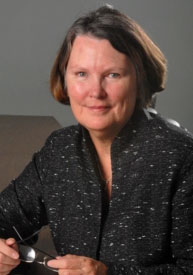 Barbara Olds joined the Colorado School of Mines in the 1980s, retiring in 2012. Her degrees are in English, and her initial activity with engineering education research was as an adjunct professor doing outcomes assessment, driven in part by a Colorado state accountability mandate. While at the Colorado School of Mines, she was involved in creating a portfolio program, curriculum development, and investigating concept inventories. In addition, between 2003 and 2015 she had various assignments at the National Science Foundation, most recently as a Senior Advisor in the Directorate for Education and Human Resources.
Barbara Olds joined the Colorado School of Mines in the 1980s, retiring in 2012. Her degrees are in English, and her initial activity with engineering education research was as an adjunct professor doing outcomes assessment, driven in part by a Colorado state accountability mandate. While at the Colorado School of Mines, she was involved in creating a portfolio program, curriculum development, and investigating concept inventories. In addition, between 2003 and 2015 she had various assignments at the National Science Foundation, most recently as a Senior Advisor in the Directorate for Education and Human Resources.
The profile below was authored by Cheryl Allendoerfer, University of Washington, based on an interview by Bram Lewis, Virginia Tech, with Dr. Olds in 2014.
Dr. Barbara Olds
Associate Vice President for Educational Innovation
Professor of Liberal Arts and International Studies
Colorado School of Mines
Ph.D., English, University of Denver, 1984
M.A., English, University of Denver, 1972
B.A., English, Stanford University, 1969
Continue reading Barbara Olds: An unexpected path into engineering education

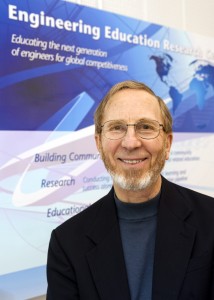 Denny Davis was a professor at Washington State University for 36 years, and is currently a Visiting Professor at The Ohio State University. He has always been interested in making improvements in his classroom; however, at first he did not realize it could be an area for scholarly work. After becoming the Associate Dean of Undergraduate Programs in Engineering and Architecture, he began to formally conduct research in engineering design outcomes, curriculum, and assessment, as well as develop curriculum materials to increase the involvement of underrepresented K–12 students in mathematics, science, and engineering. Throughout his career, persistence and collaboration have been keys to his success.
Denny Davis was a professor at Washington State University for 36 years, and is currently a Visiting Professor at The Ohio State University. He has always been interested in making improvements in his classroom; however, at first he did not realize it could be an area for scholarly work. After becoming the Associate Dean of Undergraduate Programs in Engineering and Architecture, he began to formally conduct research in engineering design outcomes, curriculum, and assessment, as well as develop curriculum materials to increase the involvement of underrepresented K–12 students in mathematics, science, and engineering. Throughout his career, persistence and collaboration have been keys to his success.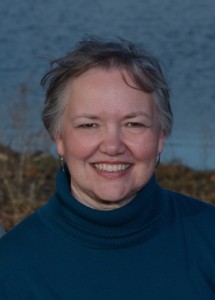 Rebecca Brent is a creative and innovative educator who strives to improve education through faculty development programs. Dr. Brent started her career as a primary school teacher but moved into higher education after she realized her satisfaction at working one-on-one with educators. As the president of Education Designs, Inc., Dr. Brent has given nearly 400 education-related workshops and has authored numerous publications on instructional methods and faculty development, classroom applications of technology in K—12 and college education, peer review of teaching, and a variety of other topics in teacher education.
Rebecca Brent is a creative and innovative educator who strives to improve education through faculty development programs. Dr. Brent started her career as a primary school teacher but moved into higher education after she realized her satisfaction at working one-on-one with educators. As the president of Education Designs, Inc., Dr. Brent has given nearly 400 education-related workshops and has authored numerous publications on instructional methods and faculty development, classroom applications of technology in K—12 and college education, peer review of teaching, and a variety of other topics in teacher education.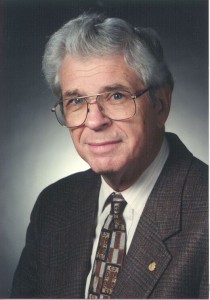 Edwin C. Jones, Jr., received all of his degrees in electrical engineering but has also worked in the field of engineering education. While a faculty member at Iowa State University, he was extensively involved in ASEE, the IEEE Education Society, and ABET. Much of his work in the education societies has been administrative. He is especially passionate about recognizing outstanding researchers in the field of engineering education. He has also worked with ABET in a variety of roles for over 30 years.
Edwin C. Jones, Jr., received all of his degrees in electrical engineering but has also worked in the field of engineering education. While a faculty member at Iowa State University, he was extensively involved in ASEE, the IEEE Education Society, and ABET. Much of his work in the education societies has been administrative. He is especially passionate about recognizing outstanding researchers in the field of engineering education. He has also worked with ABET in a variety of roles for over 30 years.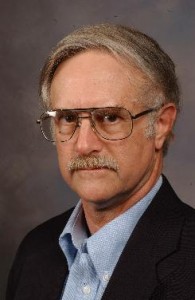
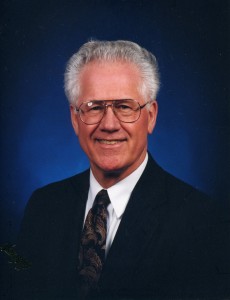 Lyle Feisel has over 50 years of experience as an engineering educator, researcher, and administrator. He began his career as a professor at the South Dakota School of Mines, and culminated his career as Dean of Engineering at the State University of New York at Binghamton. He also served as Interim Executive Director of the American Society for Engineering Education. An electrical engineer, Dr. Feisel has made significant contributions to laboratory teaching through the development of fundamental objectives for laboratories. He remains dedicated to engineering education and continues to stress the importance of clear learning objectives for students.
Lyle Feisel has over 50 years of experience as an engineering educator, researcher, and administrator. He began his career as a professor at the South Dakota School of Mines, and culminated his career as Dean of Engineering at the State University of New York at Binghamton. He also served as Interim Executive Director of the American Society for Engineering Education. An electrical engineer, Dr. Feisel has made significant contributions to laboratory teaching through the development of fundamental objectives for laboratories. He remains dedicated to engineering education and continues to stress the importance of clear learning objectives for students.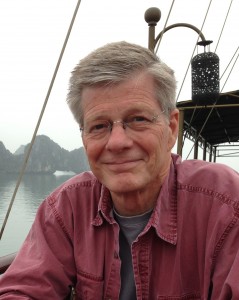 Jack Lohmann was an Industrial Engineering faculty member at the University of Michigan for ten years and at the Georgia Institute of Technology for over twenty years. He held the position of Vice Provost at Georgia Tech when he retired in 2012. He also served two years as a program director at the National Science Foundation (NSF). Dr. Lohmann helped develop many education programs during his career, including NSF’s Engineering Education Coalitions program and the International Plan at Georgia Tech. As editor of the Journal of Engineering Education, Dr. Lohmann played a critical role in transitioning the journal to a highly-regarded learning science journal in engineering.
Jack Lohmann was an Industrial Engineering faculty member at the University of Michigan for ten years and at the Georgia Institute of Technology for over twenty years. He held the position of Vice Provost at Georgia Tech when he retired in 2012. He also served two years as a program director at the National Science Foundation (NSF). Dr. Lohmann helped develop many education programs during his career, including NSF’s Engineering Education Coalitions program and the International Plan at Georgia Tech. As editor of the Journal of Engineering Education, Dr. Lohmann played a critical role in transitioning the journal to a highly-regarded learning science journal in engineering.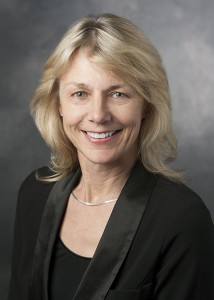 Sheri Sheppard has been deeply involved in engineering education since 1986. Early experiences as an engineer in the automotive industry and teaching engineering courses in the evenings fueled a desire to pursue a Ph.D. and, ultimately, a faculty position at Stanford University. Dr. Sheppard’s participation in the NSF-sponsored Synthesis Coalition (1990–94) helped her to emphasize engineering education within her own career. She also served as a Senior Scholar at the Carnegie Foundation for the Advancement of Teaching from 1999 to 2008. Dr. Sheppard has co-authored a textbook on engineering mechanics, written numerous conference and journal articles, and mentored many undergraduate and graduate students, post-doctoral researchers, and faculty colleagues in conducting scholarly teaching and engineering education research.
Sheri Sheppard has been deeply involved in engineering education since 1986. Early experiences as an engineer in the automotive industry and teaching engineering courses in the evenings fueled a desire to pursue a Ph.D. and, ultimately, a faculty position at Stanford University. Dr. Sheppard’s participation in the NSF-sponsored Synthesis Coalition (1990–94) helped her to emphasize engineering education within her own career. She also served as a Senior Scholar at the Carnegie Foundation for the Advancement of Teaching from 1999 to 2008. Dr. Sheppard has co-authored a textbook on engineering mechanics, written numerous conference and journal articles, and mentored many undergraduate and graduate students, post-doctoral researchers, and faculty colleagues in conducting scholarly teaching and engineering education research.